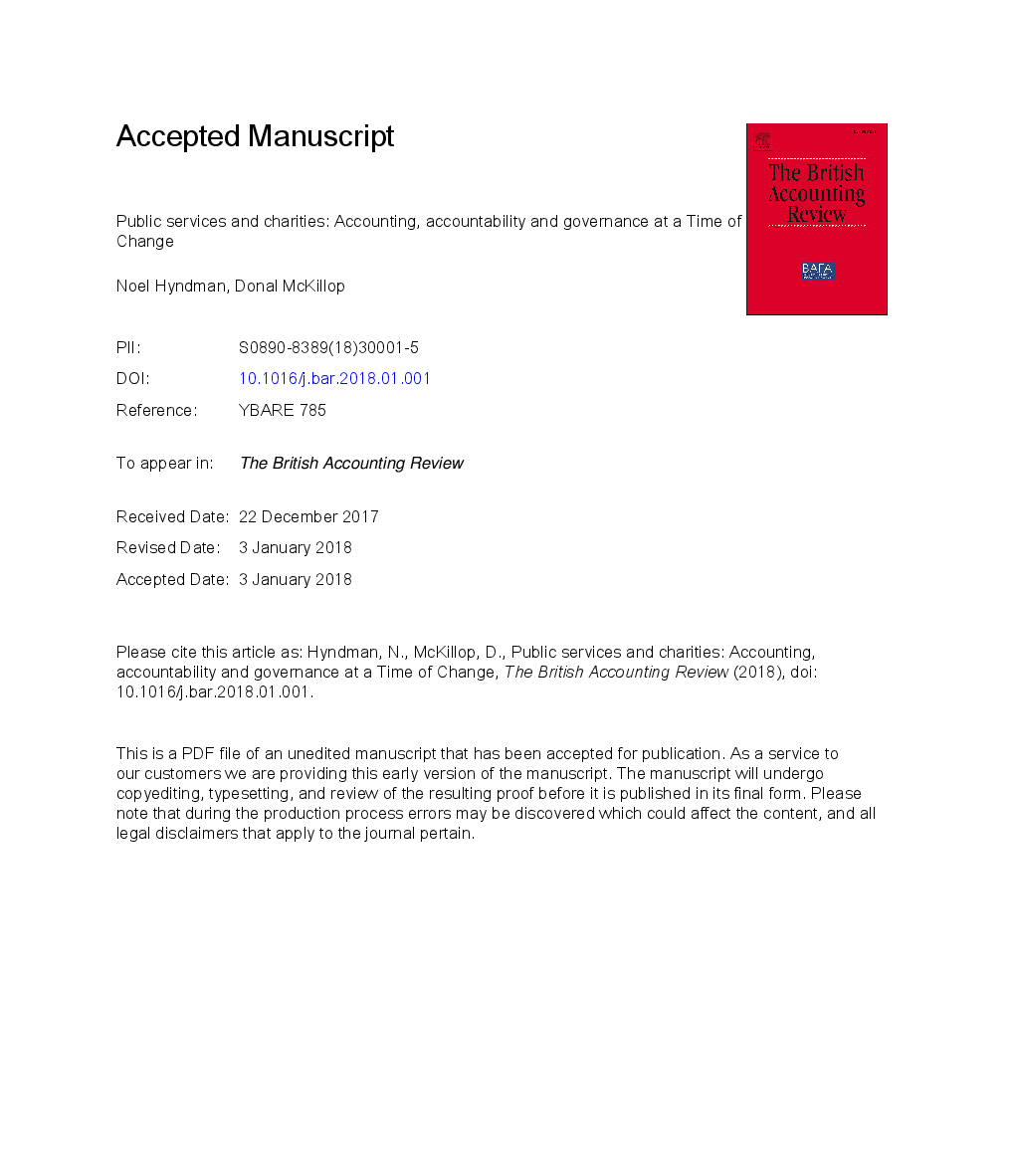ترجمه فارسی عنوان مقاله
خدمات عمومی و موسسات خیریه: حسابداری، حسابدهی و حکومتی در زمان تغییر
عنوان انگلیسی
Public services and charities: Accounting, accountability and governance at a time of change
| کد مقاله | سال انتشار | تعداد صفحات مقاله انگلیسی |
|---|---|---|
| 103976 | 2018 | 12 صفحه PDF |
منبع

Publisher : Elsevier - Science Direct (الزویر - ساینس دایرکت)
Journal : The British Accounting Review, Volume 50, Issue 2, February 2018, Pages 143-148
ترجمه کلمات کلیدی
خدمات عمومی، خیریه ها، مدیریت عمومی جدید، نه برای سود،
کلمات کلیدی انگلیسی
Public services; Charities; New Public Management; Not-for-profit;

